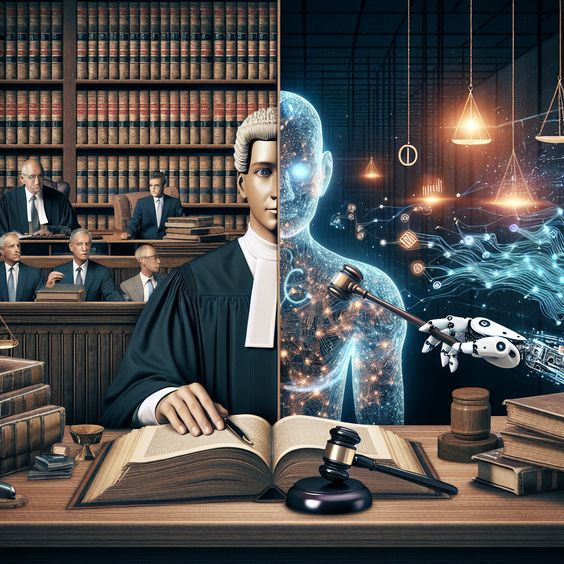
Legal
Empowering Justice: The Profound Benefits of AI in the Legal Sector
In the realm of law and justice, the integration of Artificial Intelligence (AI) has ushered in a new era of efficiency, accuracy, and accessibility. From legal research to case management and contract analysis, AI technologies are revolutionizing various aspects of the legal sector, offering profound benefits to legal professionals, clients, and the justice system as a whole. As AI continues to evolve and innovate, its positive impact on the legal sector is poised to transform the way law is practiced, adjudicated, and accessed, ultimately advancing the cause of justice and the rule of law.
One of the most significant contributions of AI to the legal sector is in legal research and analysis. Traditionally, legal professionals spend countless hours sifting through vast volumes of case law, statutes, and legal documents to find relevant precedents and legal arguments. However, AI-powered legal research platforms leverage natural language processing (NLP) algorithms to analyze and interpret legal texts, enabling lawyers to quickly find relevant case law, statutes, and legal commentary with unprecedented speed and accuracy. By automating tedious research tasks, AI technologies empower legal professionals to focus their time and expertise on strategic analysis, case preparation, and advocacy, ultimately enhancing the quality of legal representation and the efficiency of the legal process.
Moreover, AI-driven predictive analytics models are transforming the way legal professionals assess case outcomes and develop litigation strategies. By analyzing historical case data, judicial decisions, and legal precedents, AI algorithms can identify patterns and correlations that help predict the likely outcome of a case and assess the strengths and weaknesses of different legal arguments. This data-driven approach enables lawyers to make more informed decisions, optimize litigation strategies, and achieve better outcomes for their clients. Additionally, AI-powered predictive analytics can help legal practitioners manage caseloads more effectively, prioritize tasks, and allocate resources efficiently, leading to improved productivity and client satisfaction.
Furthermore, AI technologies are revolutionizing contract analysis and management in the legal sector. Contracts are the foundation of business relationships, but reviewing and analyzing complex legal agreements can be time-consuming and error-prone. AI-powered contract analysis platforms use machine learning algorithms to extract key terms, clauses, and provisions from contracts, identify potential risks and obligations, and ensure compliance with legal requirements. By automating contract review processes, AI technologies enable legal professionals to streamline due diligence, accelerate contract negotiations, and minimize the risk of costly errors and disputes, ultimately saving time and resources for businesses and clients.
Additionally, AI-driven document automation tools are empowering legal professionals to create, draft, and manage legal documents more efficiently. By leveraging AI algorithms, lawyers can generate customized legal documents, such as contracts, pleadings, and legal briefs, from templates and predefined clauses with minimal manual intervention. This streamlines document creation processes, reduces repetitive tasks, and enhances document accuracy and consistency. Moreover, AI-powered document automation platforms can integrate with other legal software systems, such as case management and billing software, to create seamless workflows and improve overall productivity and collaboration among legal teams.
Moreover, AI technologies hold immense potential in improving access to justice and legal services for underserved communities and individuals. Virtual legal assistants powered by AI algorithms can provide legal information, guidance, and assistance to individuals who cannot afford legal representation or face barriers to accessing traditional legal services. These AI-driven virtual assistants use NLP algorithms to understand users' legal queries and provide accurate information and resources to help them navigate legal processes, understand their rights, and resolve legal issues. By democratizing access to legal information and services, AI technologies have the potential to empower individuals, promote fairness and equality, and advance the cause of justice for all.
In conclusion, the integration of AI into the legal sector is revolutionizing the practice of law, offering profound benefits to legal professionals, clients, and the justice system as a whole. From legal research and case analysis to contract management and access to justice, AI technologies are transforming various aspects of the legal profession, enhancing efficiency, accuracy, and accessibility. As AI continues to evolve and innovate, its positive impact on the legal sector is poised to advance the cause of justice, promote fairness and equality, and empower individuals and communities to exercise their rights and access legal services effectively.
How will AI Care will help better your field

